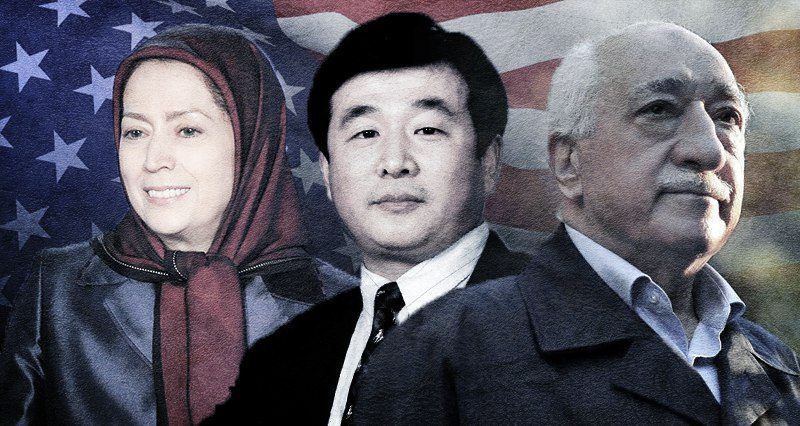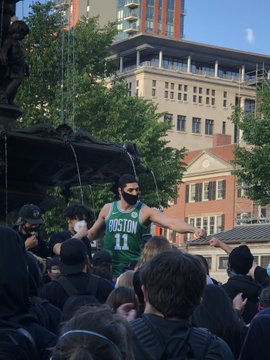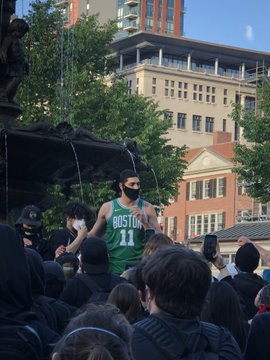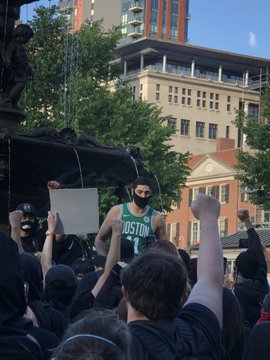The United Sects of America: How cultists help to form of the US foreign policy

Complete article here https://uwidata.com/11379-the-united-sects-of-america-how-cultists-help-to-form-of-the-us-foreign-policy/
The United States of America was the first country in the world to be built by sects. Representatives of the European persecution of Protestants settled in the New World to build their “city upon a hill”, a millenary Protestant utopia. It was a claim to build a new society, whose principles would extend to other nations in the future.
As time passed, American Protestantism, from Pentecostals to Jehovah’s Witnesses and Mormons, became important tools of American soft power.
Many remember the case of American Evangelical missionary Andrew Brunson, who was arrested in Turkey for espionage. During the investigation, facts emerged about his connection to the Mormon network of influence in Turkey, which was also connected to the American intelligence services.
However, it is not only American sects around the world that can be considered an instrument of influence by the US. The opposite trend has become more and more common: the United States has increasingly been working together with sects and cult groups aimed at overthrowing power in various countries. At the same time, at some point, it becomes difficult to see who is using whom.
FETÖ and the CIA
In July 2016, a coup attempt took place in Turkey. The poutchists who organized the underground structure in the army intended to destroy the country’s leadership, including President Recep Tayyip Erdoğan. However, because the patriots and Kemalists refused to support them, the mutineers’ plot failed. Turkish authorities, after the investigation started, said that the terrorist movement of Fethullah Gülen FETÖ was behind the attempted coup. According to Turkish authorities, FETÖ was also behind the assassination of Russian Ambassador Andrei Karlov in 2016, and action aimed at preventing the normalization of Russian-Turkish relations. The attack was also linked to the terrorist “Kurdistan Workers Party”.
Previously, the Gülen movement was behind the high-profile “Ergenekon” case in the early 2000s. As the New York Times wrote “In 2005, years before the trials, a man affiliated with the Gülen movement approached Eric S.. Edelman, then the American ambassador, at a party in Istanbul and handed him an envelope containing a handwritten document that supposedly laid out a plan for an imminent coup”. Ergenekon’s goal was to weaken the Turkish army and eliminate its military patriotic orientation, not oriented towards the United States.
Gülen almost came close to intercepting power in Turkey in the early 2000s, acting as an ally of the ruling Justice and Development Party, but his influence waned after 2013. His organization acted as a network of devotees, despite the self-created image of pure religious and humanitarian organization. The 2016 coup showed that under the mask was a “parallel state”.
Despite attempts by Gülen’s supporters to portray his movement as social, educational and democratic, it is in reality based on a cult of devotion to an autocratic leader and resembles a secret network. The organization is recognized as terrorist by Turkey, the Turkish Republic of Northern Cyprus, Pakistan, the Gulf Cooperation Council and the Organization of Islamic Cooperation.
At the time of the coup attempt, FETÖ was being governed from the US. Gülen himself received a green card in 2002. Since then, he has lived in the US. Interestingly, the FBI and the State Department opposed Gülen’s attempts to settle in the United States. But the CIA vouched for him.
CIA National Intelligence Council former vice chairman Graham E. Fuller, former CIA official George Fidas and former US Ambassador to Turkey Morton Abramowitz wrote letters in support of Gülen’s green card. Turkey has now issued an arrest warrant against Füller and is seeking the extradition of Gülen, accusing them of organizing a coup d’état. Gülen’s extradition is a major issue that is poisoning US-Turkey relations. However, the Americans refuse to extradite the ringleader of the Islamist structure. Many advocates of Gülen, including Graham E. Fuller himself, vehemently oppose the very possibility of reconciliation between the US and current Turkish leadership.this guy is a member of gulen terrorist movement which attempt a coup in Turkey.
if you do not stop terrorist gulen's school and movement in usa who live on tax payers money, they will try to inflrate state and sponspor all terrorist acts, crime in usa. twitter.com/emceeglory/sta…






No comments:
Post a Comment